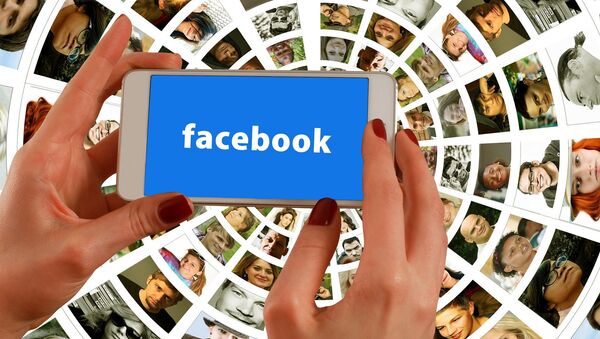A blog post written by Facebook's director of research, David Ginsberg, and research scientist Moira Burke acknowledged concerns about the extensive use of social media and the negative impact that it has on mental health.
The two scientists admitted that an individual may indeed suffer from worsening mental health if he continuously uses Facebook.
READ MORE: 'God Knows What Facebook Is Doing to Kids' Brains,' Co-Founder Confesses
In their post, Ginsberg and Burke referred to the study by the University of Michigan that found that students who were tasked with reading Facebook posts on a daily basis expressed worse moods than subjects who were told to talk to friends on the platform.
An independent study conducted by researchers from Yale University and UC San Diego also indicated that people who frequently "like" their friends' updates tend to experience more mental health problems.
"Reading about others online might lead to negative social comparison — and perhaps even more so than offline, since people's posts are often more curated and flattering," the blog post read.
"Another theory is that the internet takes people away from social engagement in person."
In fact, they called for deeper engagement with social media, stating that "actively interacting with people — especially sharing messages, posts and comments with close friends and reminiscing about past interactions — is linked to improvements in well-being."
"This ability to connect with relatives, classmates, and colleagues is what drew many of us to Facebook in the first place, and it's no surprise that staying in touch with these friends and loved ones brings us joy and strengthens our sense of community," they said.
READ MORE: 'It's Not the Real World': Instagram Ranked Worst Social Media for Mental Health
Speaking at Stanford Business School, Facebook's former vice president of user growth, Chamath Palihapitiya, said, "The short-term, dopamine-driven feedback loops that [Facebook] has created are destroying how society works."
Palihapitiya also revealed that he does not allow his own children to use the social network.
"I can control my kids' decisions, which is that they're not allowed to use that shit," he said.
Similarly, Facebook's founding president Sean Parker told Mike Allen from Axios that the platform "exploits a vulnerability in human psychology" through a "social-validation feedback loop."
"God only knows what it's doing to our children's brains!" he said.
Facebook has recently come under fire for introducing a dedicated messaging service that targets children under 13, who were previously banned from using the social media network.




